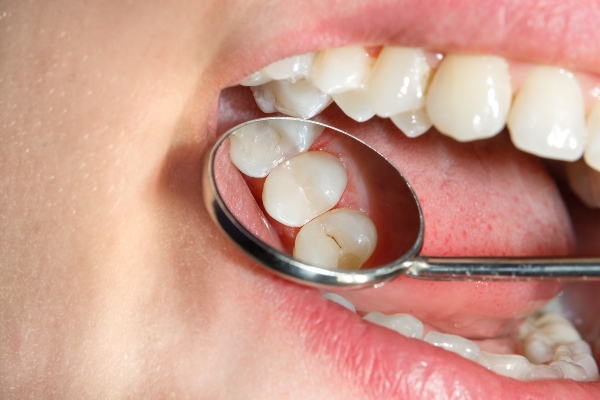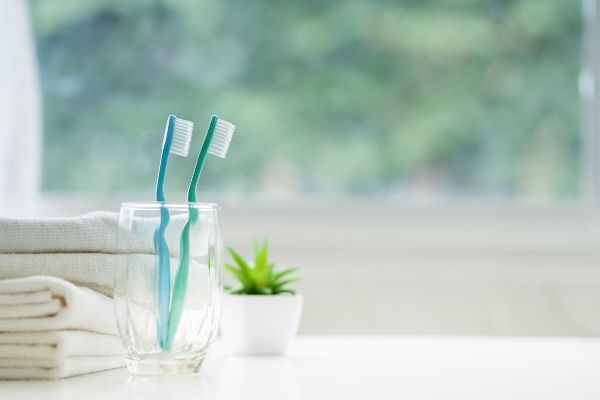 Dental check-ups are an important part of oral health care. In pediatric dentistry, children should have a check-up every six months to keep teeth and gums healthy. Dental check-ups help to detect and treat any issues with the teeth and gums as they arise and can help prevent further issues from occurring.
Dental check-ups are an important part of oral health care. In pediatric dentistry, children should have a check-up every six months to keep teeth and gums healthy. Dental check-ups help to detect and treat any issues with the teeth and gums as they arise and can help prevent further issues from occurring.
What to expect at a dental check-up
Dental check-ups should begin within six months of the first baby tooth emerging and by the time a child turns 1 year old. It is always a good idea for parents to help prepare their children for dental check-ups. Knowing what to expect at a pediatric dentistry appointment can help children feel more at ease about visiting the dentist and can also make future appointments easier for them.
Cleanings
Professional teeth cleanings are done during dental check-ups. These cleanings help to eliminate any plaque and tartar that have built up on the teeth. Biannual cleanings prevent any accumulation of plaque and tartar. If plaque is not removed, it hardens and turns into tartar. Tartar is unable to be removed at home and can cause serious dental issues such as gum disease if left untreated.
After plaque and tartar are removed, the teeth are thoroughly brushed and flossed. After the cleaning is complete, a fluoride treatment is usually applied to the teeth to help give them extra protection from cavities.
Examinations
In addition to a cleaning, an examination is also performed during a pediatric dentistry check-up. The dental exam involves a thorough inspection of the teeth, gums, jaws, and oral tissues. This helps to check for cavities, as well as any dental abnormalities that may need to be addressed.
X-rays
X-rays are often part of a check-up. An x-ray provides in-depth images of the interior of the teeth, roots, and gums to get an overall look at a child's dental health. X-rays can help the dentist to see and treat any dental issues that may arise that may not be seen during a routine dental exam, including cavities, infections, gum disease, and impacted teeth.
Counseling
After the check-up is complete, the dentist will discuss any issues that need to be addressed and the treatments available. For younger children, the dentist may address dental habits such as pacifier use and thumb sucking and the impact they can have on developing baby teeth.
The dentist will also discuss dental hygiene habits, such as proper brushing of the teeth twice a day with a soft-bristled toothbrush and fluoridated toothpaste, as well as flossing once per day. Older children may be advised to add mouthwash to their hygiene routine for extra cavity protection.
Conclusion
Routine dental check-ups are critical to both the dental and overall health of children. Pediatric dentistry helps children get into the habit of regularly visiting the dentist and maintaining proper dental hygiene, setting them up for a healthy smile that will last them for a lifetime.
Request an appointment or call Hudson Valley Pediatric Dentistry at 845-363-4177 for an appointment in our Middletown office.
Recent Posts
Cavity treatment for kids is essential for a child’s oral health. Dental decay can cause discomfort, causing the child to lose focus at school. It can even result in low self-esteem and malnutrition. Treating cavities can improve your child’s general health. Here are effective techniques for cavity treatment for kids.There are cases when fillings cannot…
Parents play a crucial role in their children's tooth care by ensuring their children get started on the right path to optimal dental health. This involves overseeing children's tooth care at home while also helping them develop healthy dental habits and ensuring they see a pediatric dentist regularly.Parents will need to keep their child's mouth…
Just like adults, children need preventive dental care — that is where pediatric dentistry comes in. Many parents believe that their child's teeth are healthy simply because their child is young. The truth is that oral health issues are as prevalent in kids as much as adults. Since they love sugary treats, the risk of…


